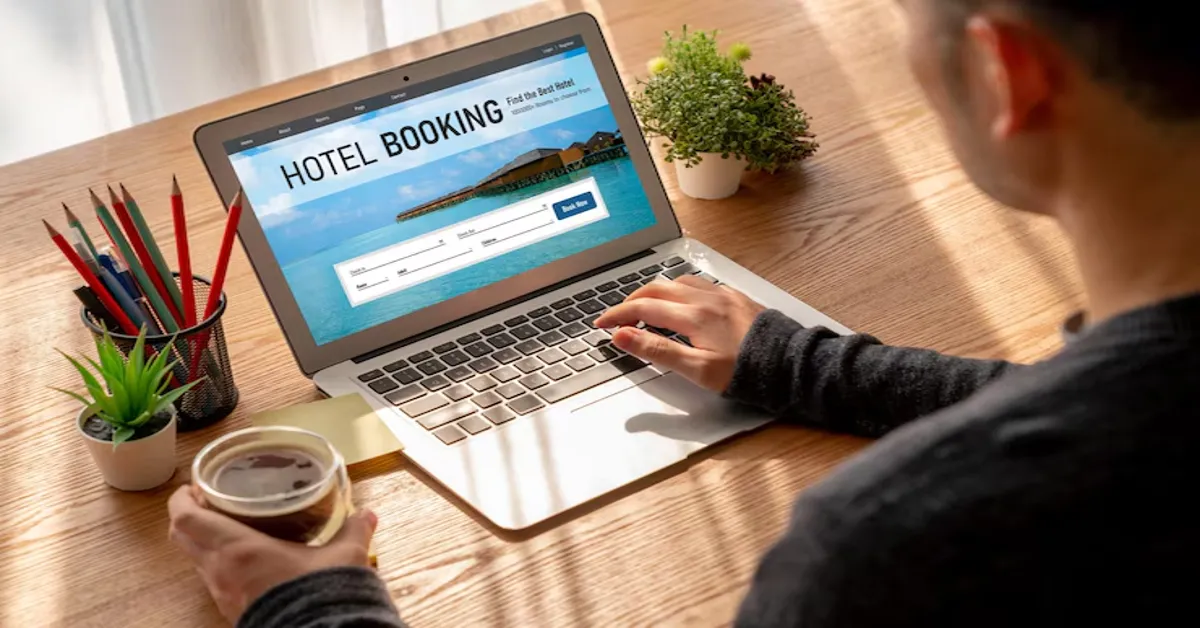The vacation rental market has expanded rapidly, and Vrbo (Vacation Rentals by Owner), part of the Expedia Group, continues to be a go-to platform for travelers seeking more space, privacy, and local experiences. But becoming a host on Vrbo isn’t as simple as listing your property and waiting for bookings. In 2025, host requirements are more comprehensive than ever, reflecting regulatory changes, guest expectations, and competitive dynamics. This guide breaks down what it takes to become and remain a successful Vrbo host Requirements today.
Who Can Become a Vrbo Host Requirements?
Vrbo’s model is inclusive, but not without boundaries. You can become a host if you:
- Own or legally lease the property you wish to list
- Are in compliance with local rental laws and zoning regulations
- Can provide a consistently clean, safe, and hospitable environment
- Commit to timely communication and responsible guest management
Vrbo accommodates both part-time hosts and professional property managers, with flexibility in listing types—ranging from cottages and condos to luxury estates.
READ MORE: Redefining Property in the Digital Age: The Rise of ellendewittrealestate.com
Updated Vrbo Host Requirements for 2025
As of 2025, here are the most important criteria Vrbo host Requirements must meet to maintain good standing:
1. Property Standards
Vrbo enforces minimum quality standards to ensure guest satisfaction:
- Sanitation: Properties must be thoroughly cleaned before each stay, adhering to Vrbo’s Enhanced Clean Protocol.
- Safety: Functional smoke detectors, carbon monoxide detectors, and fire extinguishers are required.
- Amenities: Basic household essentials must be included—linens, soap, towels, functioning appliances.
2. Guest Communication
Response time matters. Vrbo mandates that hosts reply to guest inquiries within 24 hours. Fast responses enhance your search ranking and booking likelihood.
- Pre-arrival Instructions: Must include clear directions, check-in procedures, and house rules.
- Emergency Contact: Hosts or property managers must be reachable during the guest’s stay.
3. Legal and Regulatory Compliance
Hosts are responsible for understanding and complying with:
- Local zoning laws
- Short-term rental permits and licenses
- Occupancy taxes (collected via Vrbo in most jurisdictions)
Vrbo may remove listings that fail to meet legal standards or receive verified complaints from local authorities.
4. Insurance Requirements
Vrbo provides limited liability coverage, but hosts are strongly advised to maintain their own homeowner’s or vacation rental insurance. Many insurers now offer policies tailored to short-term rental operations.
Recommended Coverage:
- Property damage
- Liability for injury
- Business interruption
5. Calendar Accuracy and Cancellation Policy
Inaccurate availability frustrates guests and reduces bookings. Vrbo requires hosts to:
- Keep calendars up-to-date
- Honor all confirmed reservations
- Select a cancellation policy that balances protection with guest flexibility (e.g., moderate or firm)
Frequent cancellations or date discrepancies may trigger penalties or removal from the platform.
6. House Rules and Listing Transparency
Vrbo encourages transparency in listing descriptions and enforceable house rules. Hosts should disclose:
- Whether pets are allowed
- Surveillance cameras (must be visible and disclosed)
- Noise-sensitive environments (e.g., HOA restrictions)
- Maximum occupancy limits
Guests must accept these terms at booking. Disputes arising from undisclosed rules are often ruled in the guest’s favor.
Tools and Features for Hosts
Vrbo offers a suite of tools to help hosts manage listings efficiently:
1. Reservation Manager
Allows you to automate communication, schedule cleaning, and adjust pricing.
2. MarketMaker
This feature uses real-time data to help you price competitively and identify demand trends.
3. Performance Dashboard
Tracks metrics like occupancy rate, revenue, and response time, offering tailored suggestions.
4. Mobile App
Manage your listing from anywhere with full access to guest messaging, booking, and calendar tools.
Managing Guest Expectations in 2025
The post-pandemic traveler expects more:
- Cleanliness is non-negotiable
- Contactless check-in is now expected in most markets
- Wi-Fi and remote work amenities are high-priority for digital nomads
- Local guides and personal touches boost reviews and repeat bookings
Tip: Responding to guest reviews—especially negative ones—demonstrates professionalism and often offsets negative feedback.
Legal Trends Shaping Host Responsibilities
In 2025, cities are tightening short-term rental laws to address housing shortages and neighborhood concerns. Common trends include:
- Night caps (limiting rental nights per year)
- Registration portals for short-term hosts
- Health and safety inspections
Hosts should check their local city or municipal websites before listing. Ignorance is not accepted as an excuse in enforcement.
Tax Implications for Vrbo Host Requirements
Income from short-term rentals is taxable in most jurisdictions. Hosts must track:
- Gross rental income
- Cleaning and maintenance expenses
- Service fees paid to Vrbo
Many hosts file as sole proprietors or LLCs, and some are subject to state-level lodging taxes. Vrbo issues 1099-K forms for U.S. hosts earning over IRS thresholds.
Tip: Consider using accounting software that integrates with Vrbo to streamline reporting.
Best Practices for Hosting Success
Success on Vrbo comes down to trust, professionalism, and guest satisfaction. Here are updated best practices for hosts:
- Set realistic expectations in your listing
- Automate messaging to ensure consistency
- Invest in high-quality photos and seasonal updates
- Create a welcome book with Wi-Fi info, local tips, and emergency contacts
- Request guest reviews politely after checkout
Frequently Asked Questions
1. Do I need a business license to host on Vrbo? Depending on your local laws, you may need a business license or short-term rental permit. Check with your city or county.
2. Does Vrbo collect and remit taxes for hosts? In many areas, yes. Vrbo automatically collects occupancy taxes, but hosts are still responsible for income tax.
3. Can I list a room instead of an entire home? Yes, but listings must clearly state that it’s a shared space, and privacy details should be highlighted.
4. What happens if a guest damages my property? You can file a claim through Vrbo’s damage protection program, but separate rental insurance is still recommended.
5. How do I improve my listing’s visibility? Maintain high response rates, positive reviews, accurate calendars, and competitive pricing to improve your ranking.









